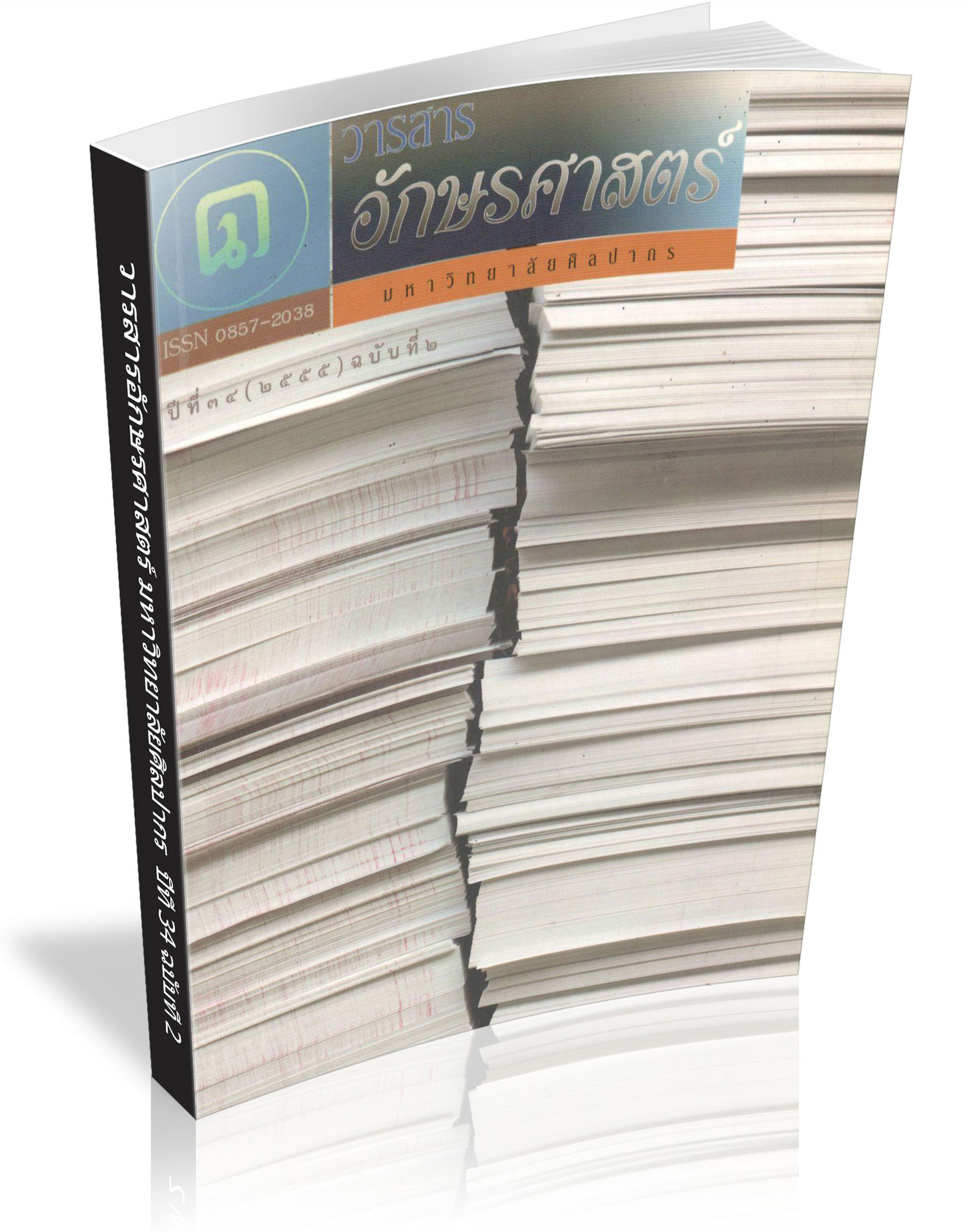Intercultural Tolerance in Ghazi Abdel-Qadir's Die sprechenden Steine
Keywords:
German juvenile's literature, intercultural tolerance, the controversy in the West Bank, claiming of the rights over the same piece of land between Palestine and IsraelAbstract
This paper explores the theme of intercultural tolerance in the context of the controversy in the West Bank in Ghazi Abdel-Qadir's Die sprechenden Steine, a German novel for young adults. In the novel, this theme is played out through narratives of experiences of the child protagonist Kamal, an eleven-year-old Palestinian boy, which reveal the complexity of the conflicts arising from the claiming of the rights over the same piece of land between Palestine and Israel. The author criticizes violent resistance and presents possible solutions to the conflicts through his recognition of interracial co-existence instead of non-partisanship.
Downloads
References
ชุติมา ประกาศวุฒิสาร. ก่อร่าง สร้างเรื่อง : เรื่องเล่า อัตลักษณ์ และชุมชนในวรรณกรรมสตรีชายขอบ. กรุงเทพฯ : คบไฟ, ๒๕๕๔.
นันทนา กปิลกาญจน์. ประวัติศาสตร์ตะวันออกกลางในโลกปัจจุบัน. กรุงเทพฯ : โอเดียนสโตร์, ๒๕๔๑.
Abdel-Qadir, Ghazi. Die sprechenden Steine. Weinheim : Beltz & Gelberg. 1998.
Clifford, James. “Diasporas,” Cultural Anthropology 9 (3), 1994.
Dowty, Alan. Israel/Palestine. 2nd ed. Cambridge : Polity Press, 2008.
Downloads
Published
How to Cite
Issue
Section
License
ผู้เขียนบทความต้องยินยอมในข้อกำหนดต่าง ๆ ของวารสารก่อนส่งบทความตีพิมพ์



